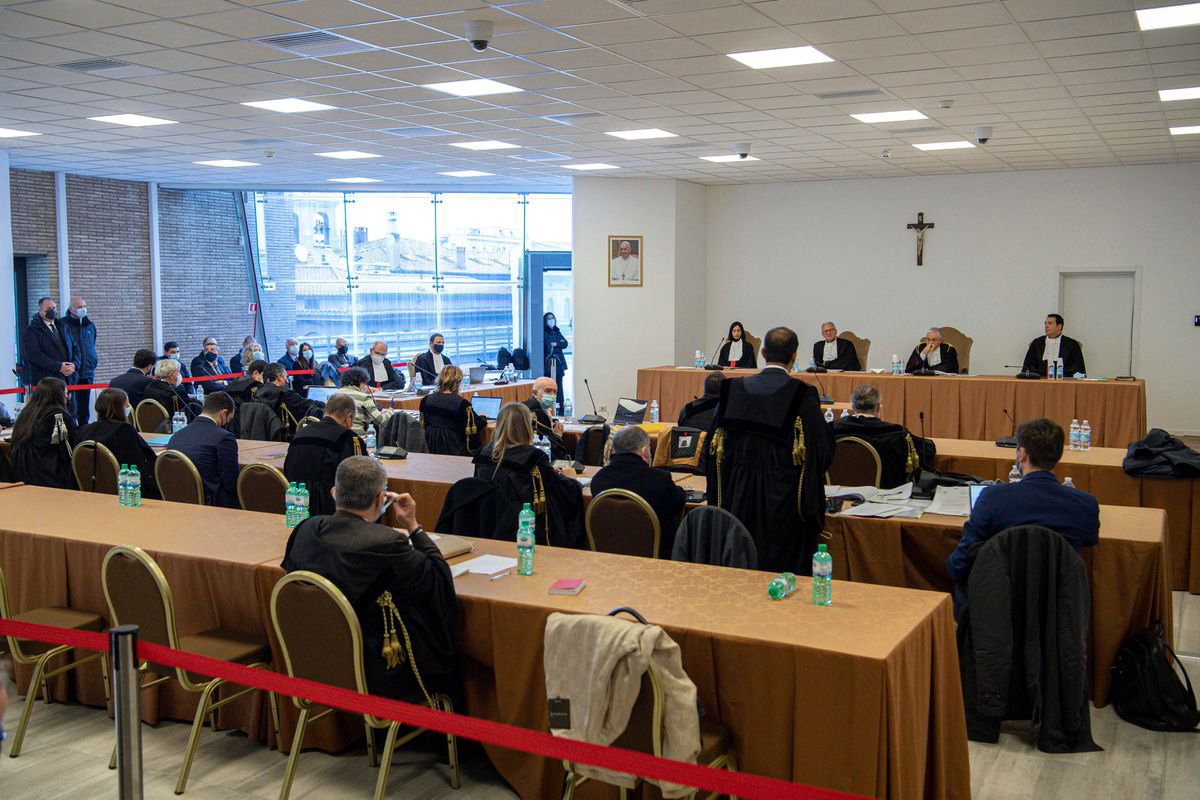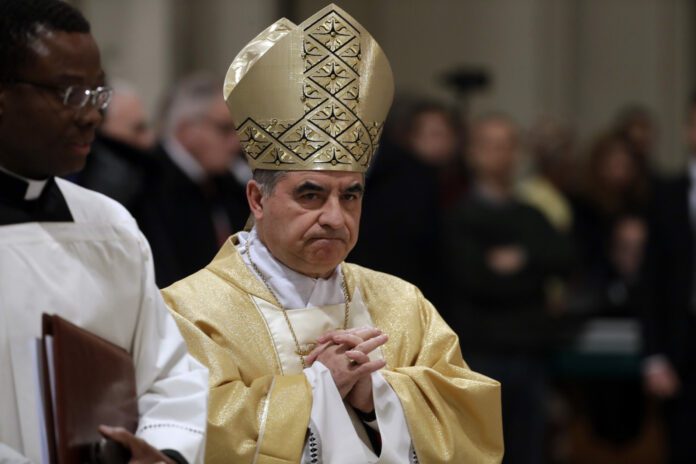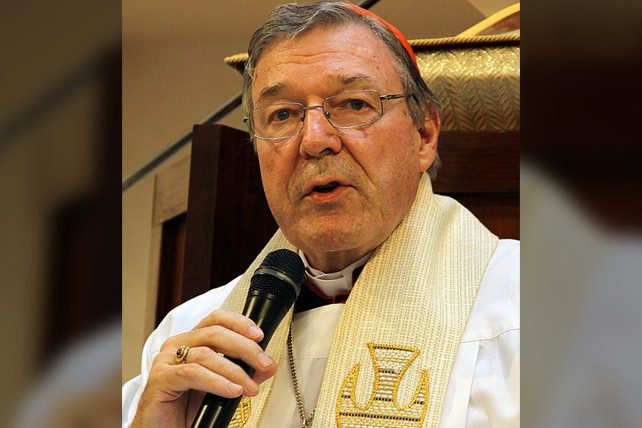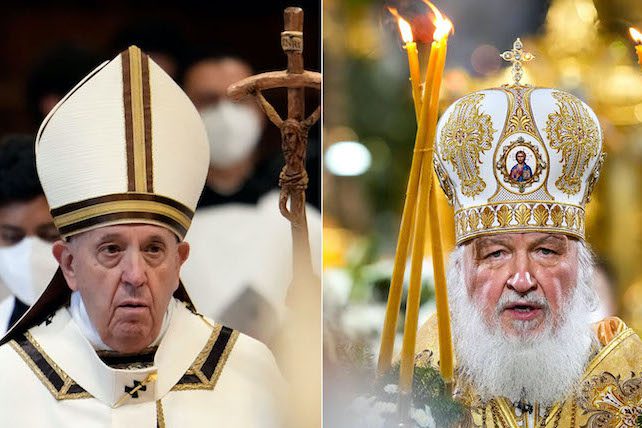VATICAN CITY (RNS) — With his “head held high,” Cardinal Angelo Becciu testified at the Vatican’s blockbuster financial trial on Thursday (March 17), declaring his innocence against charges of embezzlement, abuse of power and witness tampering with a “clear conscience.”
“I wish to declare here immediately with the strength and transparency of my conscience: I never meant for a euro, or even a cent, that I managed or was aware of, to be subtracted, ill-used or destined for goals that weren’t exclusively institutional,” said Becciu in his opening remarks before being questioned by the Vatican judges.
Becciu was substitute, the Vatican’s equivalent of chief of staff, from 2011 to 2018 and later headed its department overseeing the making of saints. Pope Francis stripped him of his rights as a cardinal — though not his title — in February 2020 after reports tied Becciu to a controversial investment into luxury real estate in London made with a Vatican fund destined for charity known as Peter’s Pence.
Ten individuals, including Becciu, have been accused by Vatican prosecutors of having defrauded the Catholic Church of over $200 million. The former substitute is also charged with mismanaging Catholic and Vatican funds that were allegedly paid to an intelligence consultant named Cecilia Marogna and members of Becciu’s family.
“I confess that it isn’t easy to speak and defend my honor in this place,” Becciu told the judges, adding that he was a victim of “a media massacre without precedent” that portrayed him as “the worst of cardinals” to the entire world.
“I have been described as a corrupt man. Greedy. Disloyal toward the pope. Only concerned with the well-being of my family members,” Becciu said.
According to Vatican prosecutors, the cardinal sent more than $276,000 from the Vatican to a personal account belonging to his brother Antonino Becciu, who runs Spes, a charitable organization in the Diocese of Ozieri in Sardinia.

A Vatican trial of 10 people accused of financial crimes, including Cardinal Angelo Becciu, at the Vatican, Nov. 17, 2021. Photo by Vatican Media
The first installment, of more than $100,000, was allegedly issued by the cardinal from the funds of the Italian bishop’s conference to his brother’s bank account in 2013. Asked about the transaction by the judges, Becciu said that he sent the money on loan because he “was excited” to contribute to a Spes project that offered work to underprivileged people. He said that while half the loan was paid back, he forgave the rest.
“Before my brother’s charitable work I, as a priest, blush,” Becciu said.
Two more payments were made to Antonino’s bank account, one from a Vatican Secretariat of State account in 2015, amounting to more than $27,000, and another in 2018, of more than $100,000. Becciu explained that it was common practice at the Vatican to make financial contributions to priests or lay individuals who needed help for a good cause.
“There was always trust to begin with,” Becciu said, adding that the 2015 payment was made to support initiatives by the local bishop. The second installment, the cardinal said, was never actually spent. He denied knowing that the bank account belonged to his brother, adding that Spes acted as the operational branch of the Catholic charity Caritas.
Spes loaned more than $143,000 to Becciu’s niece Maria Luisa Zambrano between 2014 and 2015, according to Vatican prosecutors, but Becciu denied being aware of the loan and pointed out that he and Zambrano are not directly related but they “have been friends for a long time.”





















